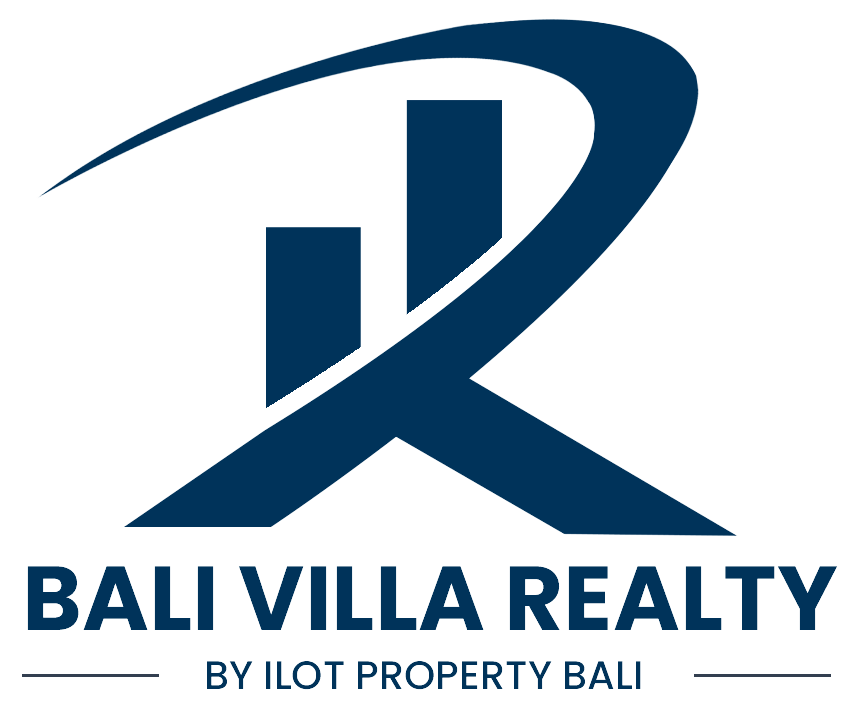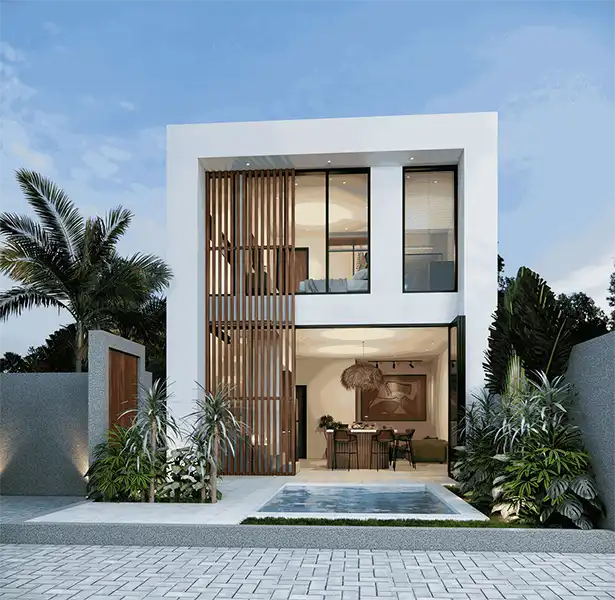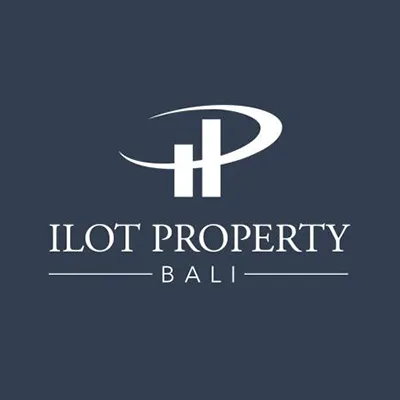Investing in property in Bali as a foreigner is like driving on the left side of the road when you’re used to driving on the right.
Suddenly, everything feels reversed.
You’re used to your country’s property rules and in Bali, the terms and laws can feel foreign.
We’ve been in Bali’s property market for over 14 years….
Here are 21 common terms you need to understand for a smooth journey into property investment in Bali.
1. Freehold (Hak Milik) & PT PMA (Penanaman Modal Asing)
Freehold means owning the land forever. In Indonesia, only Indonesian citizens can own freehold property (Hak Milik). Foreigners cannot directly own freehold property but can use a PT PMA (Foreign Investment Company).
This structure allows foreigners to invest in businesses and own property through the company. The PT PMA holds the property title, but the foreign investor controls it via the company structure.
2. Leasehold (Hak Sewa)
Leasehold means you lease the land or property for a specific period, usually 25 to 30 years, with the option to extend. This is common for foreigners in Bali since they cannot own freehold property. Leasehold provides a long-term right to use the land without owning it.
Related article: Freehold vs Leasehold: Which Ownership Type is Right for You?
3. Banjar Fee
A Banjar is a local community organization in Bali. Property owners may need to pay a Banjar fee, which supports community activities and local projects. The fee varies by location and property type. Typically, ranging from $33 to $165 per year, depending on the property’s location and size.
4. Turnkey
A turnkey property is ready to use immediately. Everything is set up, including furniture and utilities. This property type is convenient because you can move in or rent it immediately without additional setup.
5. Nominee
A nominee arrangement involves an Indonesian citizen holding the property title for a foreigner. This method allows foreigners to control property indirectly. However, using the nominee agreement is illegal, so ensure you stay away from this arrangement.
6. Notary (Notaris)
A notary is a legal official who handles important documents and transactions. In Bali, notaries assist with property transactions to ensure they are legal and properly recorded and that both parties comply with the law. Notary fees for property transactions in Bali are usually 1% to 2.5% of the property’s sale price.
7. KITAS
KITAS is a temporary stay permit in Indonesia. If you plan to live in Bali for an extended period, you need a KITAS. It allows you to stay in the country for a set period and is renewable. It is important for foreigners living in Indonesia.
8. PBG/IMB
A building permit is PBG (Persetujuan Bangunan Gedung) or IMB (Izin Mendirikan Bangunan). Before constructing or renovating property in Bali, you need this permit to ensure the building complies with local regulations and safety standards.
9. Pondok Wisata
Pondok Wisata is a license to rent your property as tourist accommodation, such as a guesthouse or villa. You need this license to ensure your property meets safety and suitability standards.
10. NJOP (Nilai Jual Objek Pajak)
NJOP is an important term to understand when investing in property in Bali. It stands for the Tax Object Sales Value and is used by the Indonesian government to determine the value of land and buildings for tax purposes.
11. PBB (Pajak Bumi & Bangunan)
PBB is the land and building tax. Property owners in Indonesia must pay this annual tax based on the value of their land and buildings. Typically, the PBB is calculated by taking 20% of the taxable sales value (NJOP) and multiplying it by 0.5%. If a property’s NJOP is IDR 1 billion, the annual PBB would be approximately IDR 1 million.
12. Zoning Laws
Zoning laws dictate how land can be used. They specify areas for residential, commercial, or industrial use. Before buying property in Bali, check the zoning laws to ensure the intended use of the land is legal.
13. NPWP (Nomor Pokok Wajib Pajak)
NPWP is a tax identification number in Indonesia. It is required to pay taxes and conduct legal transactions. If you own property or do business in Indonesia, you need an NPWP.
14. Hak Pakai (Right to Use)
Hak Pakai is the right to use and occupy land or buildings for a specific purpose, such as residence or business.
This right can be granted for a period of up to 25 years and can be extended for another 20 years. In some cases, it can be renewed for additional periods.
Foreigners can obtain Hak Pakai if they reside in Indonesia or have a legal entity (such as a PT PMA) established in the country.
Under Hak Pakai, the land remains owned by the state or another party, and the holder only has the right to use the land.
15. Hak Milik (Right to Own)
Hak Milik is the strongest form of land ownership in Indonesia. It means full ownership of the land and property. Only Indonesian citizens can have Hak Milik.
16. Hak Guna Bangunan (Right to Build)
Hak Guna Bangunan has the right to construct and own buildings on land owned by the state or another party.
This right is granted for up to 30 years and can be extended for another 20 years, with the possibility of renewal for another 30 years.
Indonesian citizens and foreign legal entities (such as a PT PMA) can obtain Hak Guna Bangunan.
The holder of Hak Guna Bangunan owns the buildings or structures constructed on the land but not the land itself.
17. AJB (Deed of Sale)
AJB is the deed of sale and purchase. It is a legal document signed by the buyer and seller, witnessed by a notary, to transfer property ownership. It is essential for the legal transfer of property.
18. Due Diligence
Due diligence is a thorough check of a property before purchasing it. It includes verifying the title, checking for debts, and ensuring the property complies with regulations. It protects buyers from legal issues and provides a sound investment. The process usually takes 1-2 weeks to complete.
19. SHM (Sertifikat Hak Milik)
SHM is the certificate of ownership, proving full ownership of the land and property. Only Indonesian citizens can have SHM. It is the strongest proof of ownership.
20. Capital Gains Tax (Pajak Keuntungan Modal)
Capital gains tax is a tax on the profit from selling a property. If you sell your property for more than you bought it, you pay this tax on the profit. It is important to consider this tax when planning to sell.
21. SHGB (Sertifikat Hak Guna Bangunan)
SHGB is a certificate showing you have the right to build on a piece of land for a set period, usually up to 80 years. It is useful for foreigners looking to develop property in Bali.
Understanding these terms and processes will help you navigate the Bali property market more effectively and make informed decisions.
If there’s a term you want to know about that isn’t on the list, message us on Whatsapp or book your FREE 10-minute consultation with our senior advisor now.
Disclaimer: This article is for information purposes only. The terms and rules for property ownership in Bali can be complex and may change. Always consult a qualified legal or real estate expert before investing in Bali.




